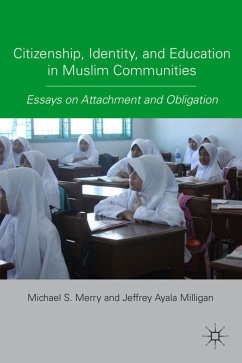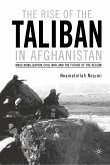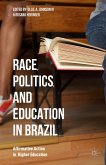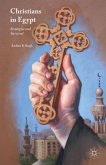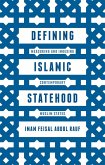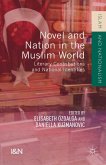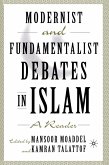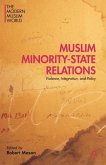This book examines ways in which different conceptions of identity and citizenship are being connected to educational pedagogy, policy, and practice. To that end, the contributors to this volume will critically examine a number of Muslim articulations of citizenship - as a multifaceted concept - and their influence on educational reform in a variety of Muslim majority and minority societies in an age when concurrently nationalisms are both intensifying at the local level, as well as being troubled (and trumped) both by supranational political governance and global economic trends.
This volume represents a rich multi-disciplinary contribution to an expanding literature on citizenship, identity, and education in a variety of majority and minority Muslim communities. Each of these essays offer important insights into the various ways one may identify with, and participate in, different societies to which Muslims belong.
This volume represents a rich multi-disciplinary contribution to an expanding literature on citizenship, identity, and education in a variety of majority and minority Muslim communities. Each of these essays offer important insights into the various ways one may identify with, and participate in, different societies to which Muslims belong.
"An outstanding collection of insightful, intellectually honest, and socially engaged essays from a range of theoretical perspectives and regional experiences of Muslims with democratic citizenship, education, and mediation of the paradox of identity and difference." - Abdullahi Ahmed An-Na'im, Charles Howard Candler Professor of Law, Emory University
"This volume tackles crucial and cutting-edge topics that address the possibilities of developing genuine pluralist societies in Muslim and non-Muslims contexts.It contains a rich and solid set of case studies that reflect the challenges facing politicians as well as educational policy makers dealing with religious diversity. The authors brilliantly capture the complex conceptual and practical relationships that operate between loyalties and citizenship, as well as the manipulation of religious identities in a context of minority - majority relations." - Mohammed Abu-Nimer, Professor of International Peace and Conflict Resolution, School of International Service, American University
"The authors of this volume have succeeded in presenting a number of cohesive and convincing insights concerning the relationship between (multicultural) citizenship, (religious) identity and education on the one hand, and Islam and Muslims on the other. They attend especially to the dynamics of this relationship. At the same time the authors have succeeded in exploring the complexity of the much debated issue of democracy and Islam in western countries as well as in the Muslim world as such. Each chapter offers both a rich array of supporting theories as well as vivid empirical examples to illustrate and explain the discussed phenomena. I highly recommend it." - Wasif Shadid, Professor Emeritus of Intercultural Communication, Tilburg University and Leiden University
"This volume tackles crucial and cutting-edge topics that address the possibilities of developing genuine pluralist societies in Muslim and non-Muslims contexts.It contains a rich and solid set of case studies that reflect the challenges facing politicians as well as educational policy makers dealing with religious diversity. The authors brilliantly capture the complex conceptual and practical relationships that operate between loyalties and citizenship, as well as the manipulation of religious identities in a context of minority - majority relations." - Mohammed Abu-Nimer, Professor of International Peace and Conflict Resolution, School of International Service, American University
"The authors of this volume have succeeded in presenting a number of cohesive and convincing insights concerning the relationship between (multicultural) citizenship, (religious) identity and education on the one hand, and Islam and Muslims on the other. They attend especially to the dynamics of this relationship. At the same time the authors have succeeded in exploring the complexity of the much debated issue of democracy and Islam in western countries as well as in the Muslim world as such. Each chapter offers both a rich array of supporting theories as well as vivid empirical examples to illustrate and explain the discussed phenomena. I highly recommend it." - Wasif Shadid, Professor Emeritus of Intercultural Communication, Tilburg University and Leiden University

